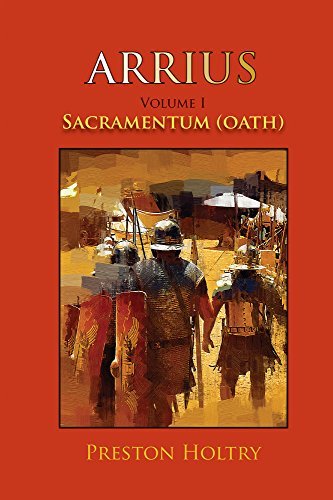What do you think?
Rate this book


301 pages, Kindle Edition
Published July 5, 2017
“Maybe it was past time to think more about his long-term future than the next battle including the once unthinkable but now lingering question was it time to leave the army.”
“He knew it wasn’t because he harbored any sympathy for the Jews, a people he neither understood nor had any inclination to do so.”
“more legionary’s dead and even more Jews.”
“Londinnium”
“I understand they did well enough to destroy the Ninth Legion and control Jerusalem for over almost two years.”